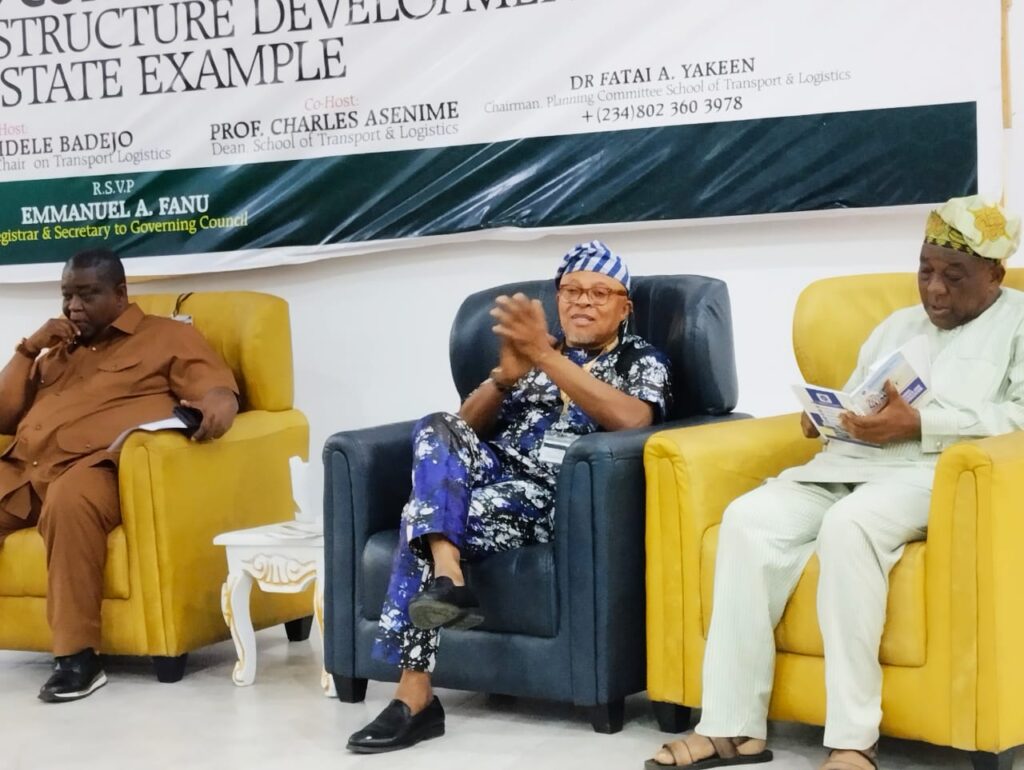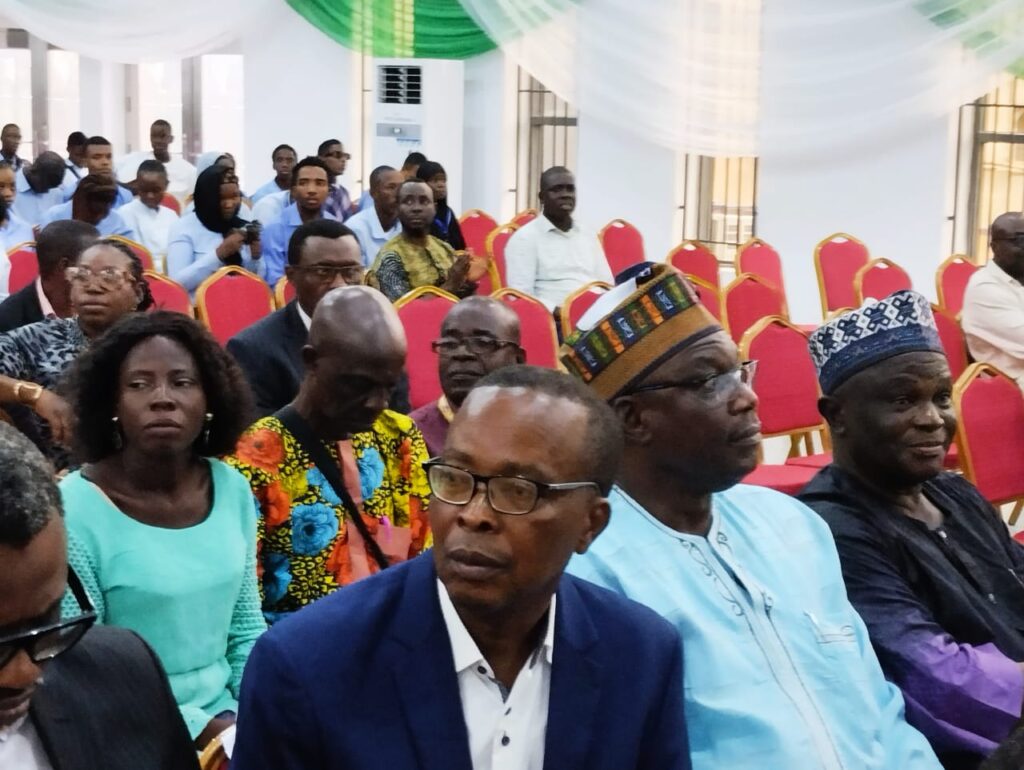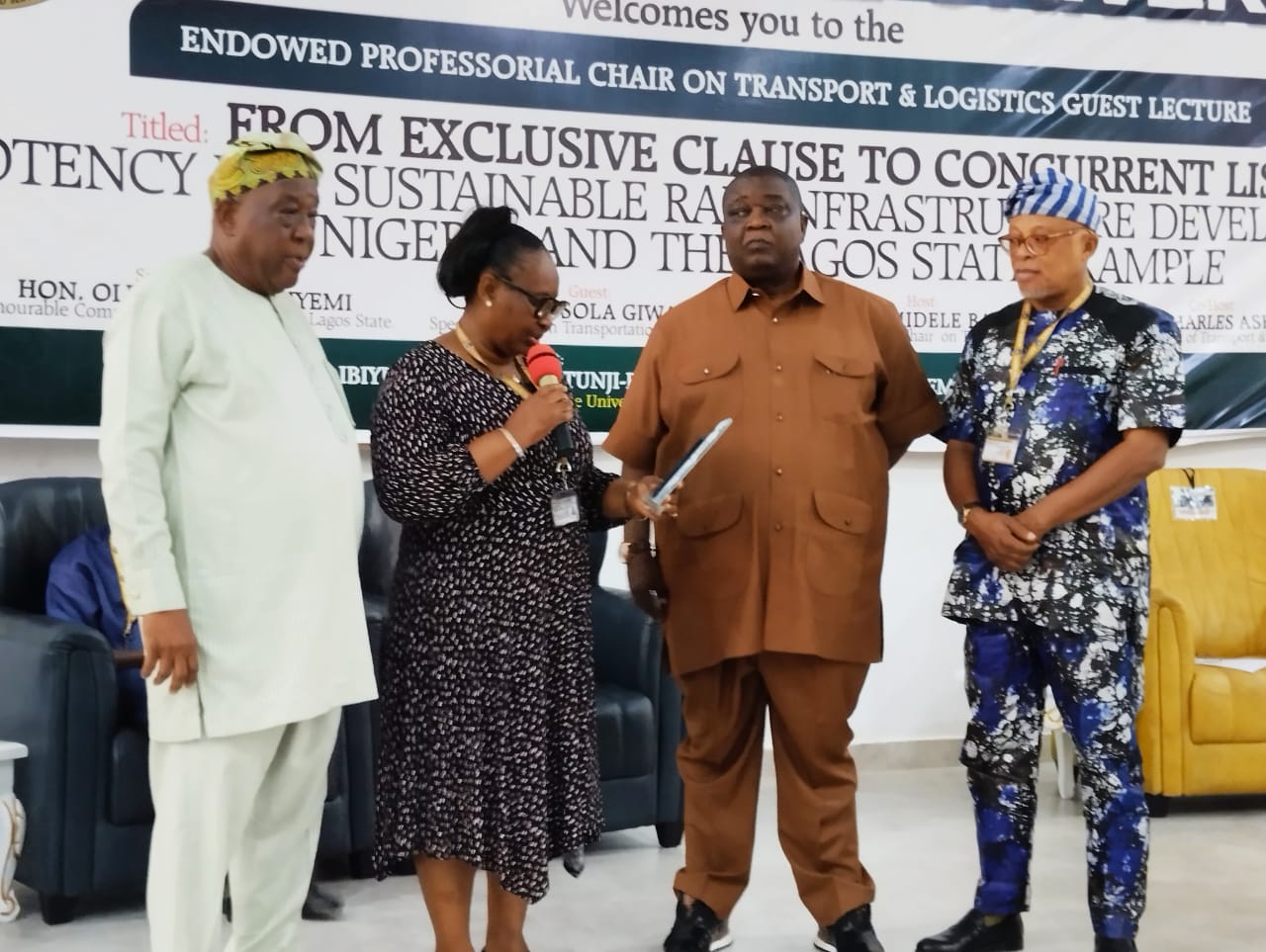The Managing Director of Nigerian Railway Corporation, Engr. Freeborn Okhiria, has given an overview of how the amendment of the Nigerian Railway Corporation (NRC) Act has engendered the growth of railways in Nigeria.
Okhiria gave this overview yesterday as a guest lecturer at the inaugural lecture of the endowed professorial chair on Transport and Logistics, domiciled at the School of Transportation, Lagos State University, Ojo.
The theme of the lecture was ‘From exclusive clause to concurrent list: Potency for sustainable rail infrastructure development in Nigeria and the Lagos State Example’.
The move of railways operations from the Exclusive list of the constitution of the country to the concurrent list effectively allowed other entities aside the NRC to be involved in railways development.
According to the MD, some states like Plateau, Niger, Borno, Kaduna and Osun are already in talks with the NRC on their plans to commence train operations in their respective areas.
According to the MD, the states would be joining Lagos and the Federal Capital Territory, Abuja, where mass transit trains initiated by the subnational governments are currently running.
The MD added “Lagos State is one of the states already operating a mass transit train in Nigeria. The Lagos Blue Line is a standard gauge track operating between Mile 2 and Marina…The service has greatly reduced the traffic jam usually experienced at Marina to Orile and Mike 2 axis, especially usually during peak hours.
“Lagos State is presently at an advanced stage of commenting the Red Line from Agbado to Oyingbo. We are currently inspecting and certifying various operating equipment along the corridor for safety concerns. When the service commences, it will greatly impact the way Lagosians travel.

“Other states are already keying in before now, using our track access tool to negotiate a train service within their corridor.
“Notable among them included Plateau State Government, already operating on trial runs, Niger State (talks ongoing), Borno State (talks ongoing), Osun State Government (hire service during festivities) and the Federal Capital Territory (FCT) currently restated, to mention a few.”
He cautioned against dropping standards due to the high cost involved on building railway infrastructure which could affect safety, urging private investors to key into the project in the area of running trains, both passengers and freight.
The Lagos State commissioner of Transportation, Oluwaseun Osiyemi, gave commendations to the Lagos state governor, Mr. Babajide Sanwo-Olu, for his steadfastness in ensuring that the state Blue and Red Rail lines come into reality.
In his presentation, the Chair of the endowment, Professor Dele Badejo, stated that “this endowment of professorial chair in transport studies is the first of its kind in transport development and sustainable development in sub-Sahara Africa.
“This guest lecture is historic because it is the first time that the endowment has gathered and assembled stakeholders and intellectuals in the rail transport sub-sector to brain storm and provide a road map for the repositioning and improving various activities and infrastructure on rail transportation.

“Since the appointment of a chair, to implement and pursue the transport development agenda of the state, it beholds that relating with the town and gown becomes very important and desirable”.
Vice-Chancellor of LASU, Prof. Ibiyemi Tunji-Bello, represented by the VC Administration, Prof. Adenine Omotunde Boyo, said that the removal of railway from exclusive to concurrent list would empower the states to invest massively railway business and boost the intermodal transport system.
She commended the initiative of the Lagos State Government for the completing and commencing daily commercial train service from Mile 2 to Marina.













